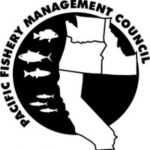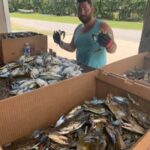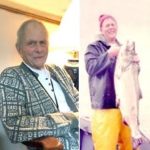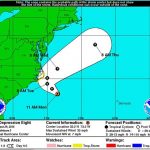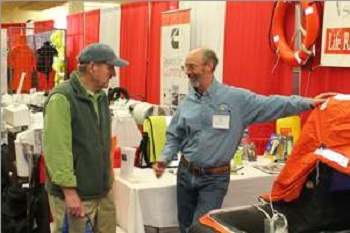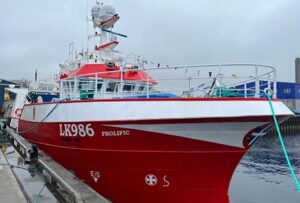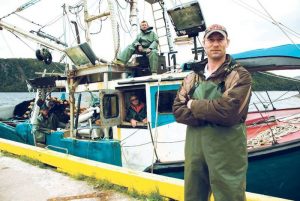Tag Archives: The Pew Charitable Trusts
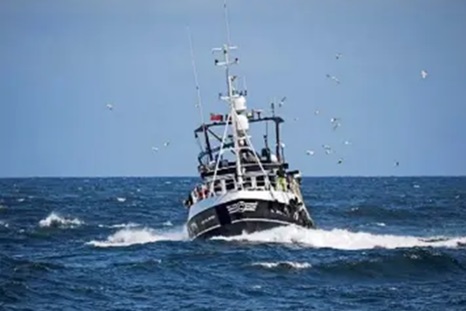
Scottish fishing chiefs lash out over conservation group Oceana’s ‘fake news’
The Aberdeen-based Scottish Fishermen’s Federation (SFF) has accused conservation group Oceana of spreading “fake news”. Oceana is today publishing a report calling for a “legally binding deadline to end overfishing”. And it claims to have the backing of nearly eight in 10 adults in Britain for stricter limits on catches in UK waters. According to Oceana, which also wants to see a ban on supertrawlers more than 100m (328ft) long, half the UK’s key fish  populations were “overfished or critically low” last year. SFF’s top team believe the conservation group’s latest report is designed to disrupt annual negotiations of overfishing quotas for 2025. Oceana is “wasting everyone’s time with a series of cherry-picked statements, reliance on obsolete science and creative wording to perpetuate a narrative of gloom and doom about fisheries that bears little relation to reality”, the fishing industry body explained. more, >>CLICK TO READ<< 20:01
populations were “overfished or critically low” last year. SFF’s top team believe the conservation group’s latest report is designed to disrupt annual negotiations of overfishing quotas for 2025. Oceana is “wasting everyone’s time with a series of cherry-picked statements, reliance on obsolete science and creative wording to perpetuate a narrative of gloom and doom about fisheries that bears little relation to reality”, the fishing industry body explained. more, >>CLICK TO READ<< 20:01
The “Redheaded Stepchild of Fishing” – Controversial drift-gill net fishery wins long-fought battle
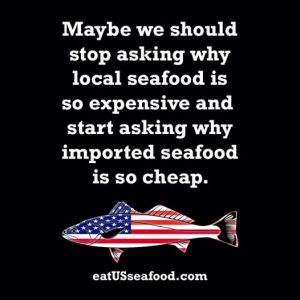 Federal fishery managers denied a proposal this week to immediately shut down Southern California’s most controversial fishery in the event that wide-mesh gill nets accidentally kill a handful of certain marine mammals or sea turtle species. The swordfish and thresher shark fishery will remain open, even if it kills several whales or sea turtles, the NOAA’s National Marine Fisheries decided. The decision not to institute so-called hard caps on the fishery comes after a public review period initiated last year was extended to discuss the law proposed by the state’s Pacific Fishery Management Council in 2014. For the few dozen fishers who still catch swordfish and thresher sharks off Southern California in deep-water drift gill nets, the decision brought a big sigh of relief. click here to read the story 08:38
Federal fishery managers denied a proposal this week to immediately shut down Southern California’s most controversial fishery in the event that wide-mesh gill nets accidentally kill a handful of certain marine mammals or sea turtle species. The swordfish and thresher shark fishery will remain open, even if it kills several whales or sea turtles, the NOAA’s National Marine Fisheries decided. The decision not to institute so-called hard caps on the fishery comes after a public review period initiated last year was extended to discuss the law proposed by the state’s Pacific Fishery Management Council in 2014. For the few dozen fishers who still catch swordfish and thresher sharks off Southern California in deep-water drift gill nets, the decision brought a big sigh of relief. click here to read the story 08:38
Who’s Behind A Stealth Ad Against The Marine Monument Expansion?
 The author seems to believe a stealth video created by an unknown source, most likely a very tiny group of individuals and citizens with a very meager budget, is outrageous, and destructive to a cause created by a billion dollar ENGO PEW, that has unlimited resources, paid soldiers, and a mega network of PEW spawned ENGO’s like Oceana, EDF! Burgeoning grass-root groups are ramping up their campaigns for and against the proposed expansion of Papahanaumokuakea Marine National Monument as President Obama weighs whether he should single-handedly create the world’s biggest marine reserve around the Northwestern Hawaiian Islands. Civil Beat requested lists from both groups — Expand Papahanaumokuakea and Fishing Means Food — to better assess who actually backs the campaigns. Read the rest here 09:54
The author seems to believe a stealth video created by an unknown source, most likely a very tiny group of individuals and citizens with a very meager budget, is outrageous, and destructive to a cause created by a billion dollar ENGO PEW, that has unlimited resources, paid soldiers, and a mega network of PEW spawned ENGO’s like Oceana, EDF! Burgeoning grass-root groups are ramping up their campaigns for and against the proposed expansion of Papahanaumokuakea Marine National Monument as President Obama weighs whether he should single-handedly create the world’s biggest marine reserve around the Northwestern Hawaiian Islands. Civil Beat requested lists from both groups — Expand Papahanaumokuakea and Fishing Means Food — to better assess who actually backs the campaigns. Read the rest here 09:54
SPECIAL REPORT: SHRIMP SAFETY – Six shrimp you might find at the store, And how to choose the best ones!
 Shopping for shrimp is confusing. Packages can have so many labels that it’s hard to know which ones to trust. One way to separate the best from the rest is to buy sustainably farmed or responsibly caught shrimp. We believe that your best choice is wild shrimp especially those that have been responsibly caught in the U.S. Avoid shrimp caught in Louisiana??? Funding for this project was provided by The Pew Charitable Trusts!! Read the rest here 08:41
Shopping for shrimp is confusing. Packages can have so many labels that it’s hard to know which ones to trust. One way to separate the best from the rest is to buy sustainably farmed or responsibly caught shrimp. We believe that your best choice is wild shrimp especially those that have been responsibly caught in the U.S. Avoid shrimp caught in Louisiana??? Funding for this project was provided by The Pew Charitable Trusts!! Read the rest here 08:41
Herring fishermen lose on higher haddock bycatch limit
Herring fishermen are struggling to avoid haddock because the stock on Georges Bank is increasing, said Tooley, who also is a council member but recused herself from Thursday’s vote. At the same time, federal regulators have lowered the cap for haddock bycatch from previous years, she said. “The biomass has gone up and the cap has gone down. That’s the problem,” she said. Read more here 11:12
Herring and haddock fishermen at odds over bycatch
Fishermen in two of the most lucrative fisheries in the Northeast — Atlantic herring and haddock —are at odds over the management of fishing in Georges Bank, a key nerve center for both species. Atlantic herring fishermen who fish from mid-water trawl boats are on track this year to exceed their limit for incidental catch of haddock in Georges Bank, off the coast of New England, federal regulators said. That would trigger rules that would effectively shut down the herring fishery. Read more here 11:39
Pews Peter Baker, once again, pushes his agenda – No Refuge For Fish? Stressed Species Need Safe Habitat
 Overfishing and warming waters are combining to create a potent one-two punch that threatens significant harm to New England’s already beleaguered fish and fishermen. Fortunately, there is one thing we can do to cushion both blows: protect ocean habitat — the places where fish spawn, grow, and find shelter and food. Read more here! 14:00
Overfishing and warming waters are combining to create a potent one-two punch that threatens significant harm to New England’s already beleaguered fish and fishermen. Fortunately, there is one thing we can do to cushion both blows: protect ocean habitat — the places where fish spawn, grow, and find shelter and food. Read more here! 14:00
Grachek: Connect The Dots – The question is why would anyone trust anything that comes from organizations such as Oceana?!!!
 Now it’s no secret that there are vast reserves of oil and gas smack dab under our most prolific fishing grounds; and it’s no secret that the oil companies have plans to profit from those reserves (see API.com: OCS 5 Year Plan). So it should also be no secret that these (mega- industry money) “Foundations” do not invest all those millions (hundreds of millions) in environmental “non-profits” such as Oceana for nothing—they are looking for a “handsome return”. They are looking for the execution of their profit-securing agendas masquerading as environmentalism. Read more here 17:43
Now it’s no secret that there are vast reserves of oil and gas smack dab under our most prolific fishing grounds; and it’s no secret that the oil companies have plans to profit from those reserves (see API.com: OCS 5 Year Plan). So it should also be no secret that these (mega- industry money) “Foundations” do not invest all those millions (hundreds of millions) in environmental “non-profits” such as Oceana for nothing—they are looking for a “handsome return”. They are looking for the execution of their profit-securing agendas masquerading as environmentalism. Read more here 17:43
Read Wasted Catch: Unsolved Problems in U.S. Fisheries here. Click the links, Read the bio’s! This is telling – “While bycatch data is often outdated and inaccurate, researchers estimate”,,,
Pew Supported Study Shows Inbreeding in Winter Flounder in Long Island’s Bays
Research conducted in six bays of Long Island, NY, and led by scientists from the School of Marine and Atmospheric Sciences at Stony Brook University (SBU) showed that local populations of winter flounder are inbred, which is a situation that is not usually considered in marine fisheries management. continued@newswise
Federal rule could upend states’ shark fin bans.
SACRAMENTO, Calif.—Several members of Congress representing coastal states are voicing concern about a proposed federal regulation that could pre-empt state bans on buying or selling shark fins. Democratic Rep. Jared Huffman of California is being joined by representatives of New York, Florida and Guam in seeking changes to a proposal they say would take away a state tool to protect shark populations. continued@montereycountyherald
CLF sues NOAA to block openings – “It’s not hypocritical at all,” says Peter Shelley who criticized Coakley for interfering with the federal regulatory process.
The day after Peter Shelley, senior counsel for Conservation Law Foundation, derided Attorney General Martha Coakley’s federal lawsuit to block NOAA’s tight new groundfish catch limits as political “soapbox” posturing, CLF and a litigation partner filed two lawsuits of their own against the National Oceanic and Atmospheric Administration. continued
IGFA join Pew Charitable Trusts in Call to Remove Longlines from Gulf of Mexico
The International Game Fish Association has long supported closing the Gulf of Mexico to surface longlines. But in an uncommon collaboration, this position is gaining new momentum as the National Oceanic and Atmospheric Administration (NOAA) prepares a new proposed regulation for the region as early as this month. IGFA has partnered with the American Bluefin Tuna Association and The Pew Charitable Trusts on this effort. continued
As I search for news, I find this today. The long reach of Pew Charitable Trust Pablum
It’s Monday. 7:32am. I’ve been searching for news for over an hour. This is my second post today. My last post for 4/14/2013 was at 22:56 last night. It’s a slow news day so far, but I find this Over Fishing – Should the number of people who fish for fun be limited? As this ScienCentral News video explains, that’s the contention of scientists who have found figures that show that recreational fishing has a much bigger impact than originally thought. Then this at the bottom – This research appeared in the September 24, 2004 issue of the journal Science and was funded by The Pew Charitable Trusts. link






 The Miami Herald >When the National Oceanic and Atmospheric Administration hosts its upcoming Washington summit May 7-9 on the future of U.S. fisheries, it will mark the first step in the effort to again reauthorize the Magnuson-Stevens Act. This meeting of stakeholders at Managing Our Nation’s Fisheries III
The Miami Herald >When the National Oceanic and Atmospheric Administration hosts its upcoming Washington summit May 7-9 on the future of U.S. fisheries, it will mark the first step in the effort to again reauthorize the Magnuson-Stevens Act. This meeting of stakeholders at Managing Our Nation’s Fisheries III 


























